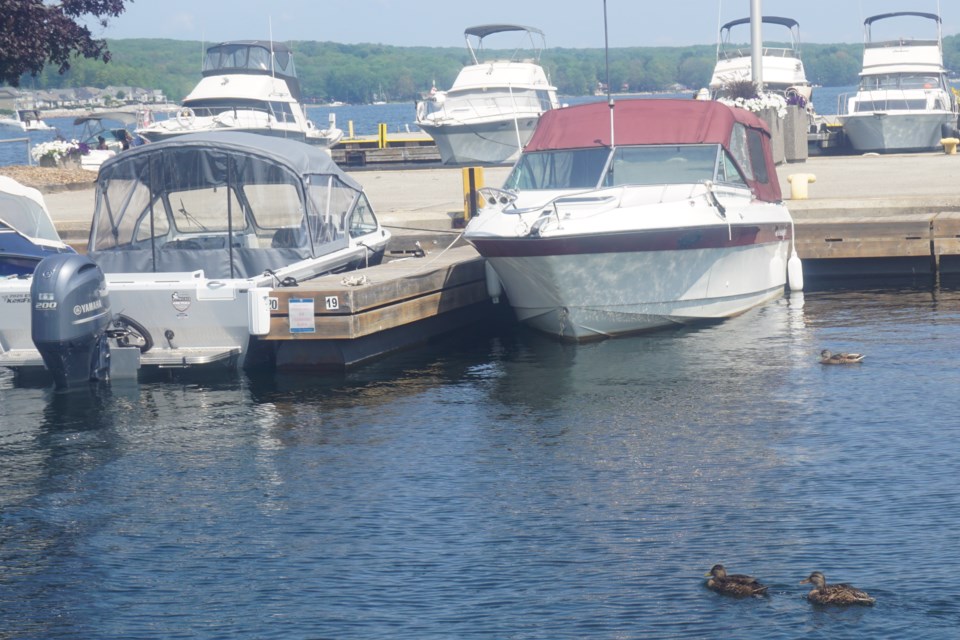An environmental group is raising the alarm over a growing concern in Georgian Bay.
With an initiative called Plastic Free July wrapping up last month and “National Beach Day” (August 30) just around the corner, Melissa De Young says it’s imperative that everyone do their part to lessen the environmental impact caused by plastic waste entering the bay along with the province’s Great Lakes.
De Young, who serves as Pollution Probe’s policy and programs director, said this movement represents the single largest initiative of its kind in the world.
“We use litter traps to remove plastic and other litter at marinas across the Great Lakes,” said De Young, noting her organization is heavily involved with the Great Lakes plastic cleanup.
“So plastic-free July is really a great tie-in with us. The messaging around ensuring that we're appropriately disposing of our plastic products, is something that's very important to us as part of the program.”
The Great Lakes Plastic Cleanup (GLPC) and its campaign ‘Little Bits, Big Problem’ is also reminding residents and seasonal visitors how to help protect the lakes when spending time at their cottages this summer.
“It's a great way for communities and individuals to get engaged and sort of be stewards for the environment and play a role in ensuring that that plastic isn't ending up in the environment and in our Great Lakes,” De Young said.
And with the Labour Day holiday weekend approaching, De Young’s organization has also come up with a list of some cottage habits and how to adapt to more eco-friendly alternatives.
As an example, she says those washing in the lakes should always use environmentally friendly products since chemicals in regular shampoos and soaps can cause harm to nature and wildlife. She also emphasizes it’s essential to never burn garbage to keep warm during cooler nights since it releases harmful chemicals that can end up in the water.
De Young said boaters also play an important role in ensuring Georgian Bay remains plastic-free by never throwing refuse overboard while everyone plays a part in reducing plastic waste through their wallet by pre-planning meals and opting not to take the easy route by purchasing pre-packaged and/or fast-food options
De Young said a number of marinas around the bay have signed on to encourage boaters to ensure they’re disposing of waste properly and never to throw out plastics.
But how big an issue is it really?
While De Young notes much attention focuses around plastics found in oceans and “for good reason,” it’s become quite apparent it’s also a huge issue in the Great Lakes.
“Researchers are estimating that up to 10,000 tonnes of plastic could be entering the Great Lakes every year,” she said. “So, it's a fairly substantial number. And we know that there are a lot of really negative impacts that plastics can have on the environment and also on wildlife and ecosystems
“So we're trying to do our part and kind of ensuring that not only are we removing plastic that's already found its way into the environment, but also encouraging people to make choices that will stop that plastic from getting into the environment in the first place.”
In Canada, more than 1/3 of plastics are created for single-use products or packaging. This plastic is often not properly disposed of and can end up in landfills and our bodies of water, according to De Young.
“There are a lot of things that people can do when they're heading out into the lake environment,” De Young said, it’s essential to collect all garbage and recycling to bring home after a day at the beach or a boat trip.
“It’s also important to plan ahead and make sure that you're bringing with you as little plastic including single-use plastics as possible.”
The Great Lakes are home to over 3,500 species of plants and animals, and provide drinking water to more than 48 million people in Canada and the United States.
De Young said these small changes to one's cottage, beach and boating habits can make a big difference in the Great Lakes, helping sustain the communities and ecosystems that rely on them.
"There's plastic sometimes floating in the water that could only be there because someone properly dispose of it," she said, noting that roughly 80% of litter found on Great Lakes' shorelines comes from plastics.
"From our initial data that we've been collecting (during this program), there are definitely locations where we're finding higher concentrations, particularly of microplastics. And that often corresponds with larger urban centres and densification."
